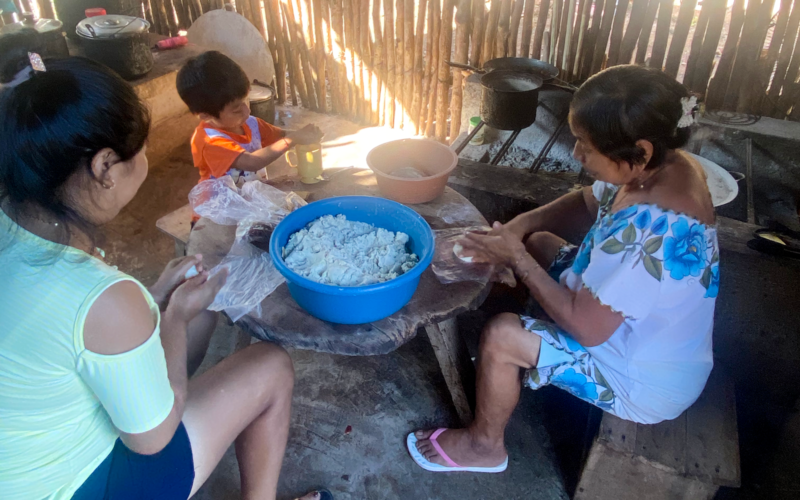
Lucia Alcalá, associate professor in the Department of Psychology, recently received a $144,497 award from the National Science Foundation (NSF). The award is part of a collaborative research grant with Lindsey Richland and Katherine Rhodes at the University of California, Irvine. The three-year grant, entitled “Collaborative Research: Integrating Culturally-Responsive Measures and Comparisons to Strengthen Developmental Models of Reasoning and Executive Function” totals $500,000 in award funds for both institutions. Created by Congress in 1950, the NSF supports research to create knowledge that transforms the future.
Alcalá is a cultural developmental psychologist with extensive experience conducting cross-cultural studies of Latinx children’s home socialization of cognitive skills. She focuses on how learning is organized among indigenous (Yucatec Maya and P’urhépecha) communities in Mexico and the United States. Alcalá will direct multiple aspects of the NSF project, including culturally responsive task development, Spanish translations, qualitative and quantitative interviews, video data code design, training, analysis, and dissemination. She has extensive experience with mixed-methods research, bringing both qualitative and quantitative coding expertise.
“The project aims to expand theoretical understandings of reasoning and executive function (EFs) skills in young children (5-to-10 year-olds) by developing culturally relevant EF measures using multi-method data from two groups: first and second-generation Latinx and middle-class Euro-Americans. We will test relations to children’s home participation in high cognitive demand tasks,” Alcalá explained.
Notably, the project aims to refine the developmental field’s theories of what may constitute high-leverage practices for growing EF skills to include meaningful management and participation in tasks with real-world consequences like managing home chores with complex constraints.
“This would suggest the need for a transformative shift in the theoretical models of development for reasoning and Executive Functions (EFs), away from training models centering on developing skills through repetitive use of cognitively taxing, abstract reasoning and attention tasks and toward intentionally providing children with responsibilities and consequential participation in everyday social and cultural practices that might transfer to use of EFs in everyday reasoning,” Alcalá continued.
This project’s proposed research has the potential for transformational insights into the nature and development of EFs and reasoning skills. “Models of key psychological constructs such as EF continue to be primarily developed and refined on samples of children from WEIRD societies (Western, Educated, Industrialized, Rich, Democratic), which represent only a small portion of the world’s population (12%) (Henrich et al., 2010) and may have led to theories of development for these cognitive skills to misrepresent mechanisms in many children’s experiences,” said Alcalá. Her project also has the potential to strengthen collaboration between CSUF and UCI, by supporting the academic pipeline for CSUF students to be mentored by current Ph.D. students from UC Irvine. This increases their readiness in pursuing a career in child development or applying to Ph.D. programs.